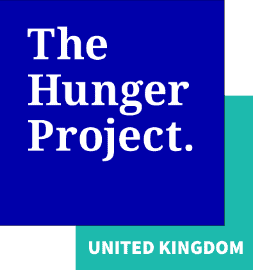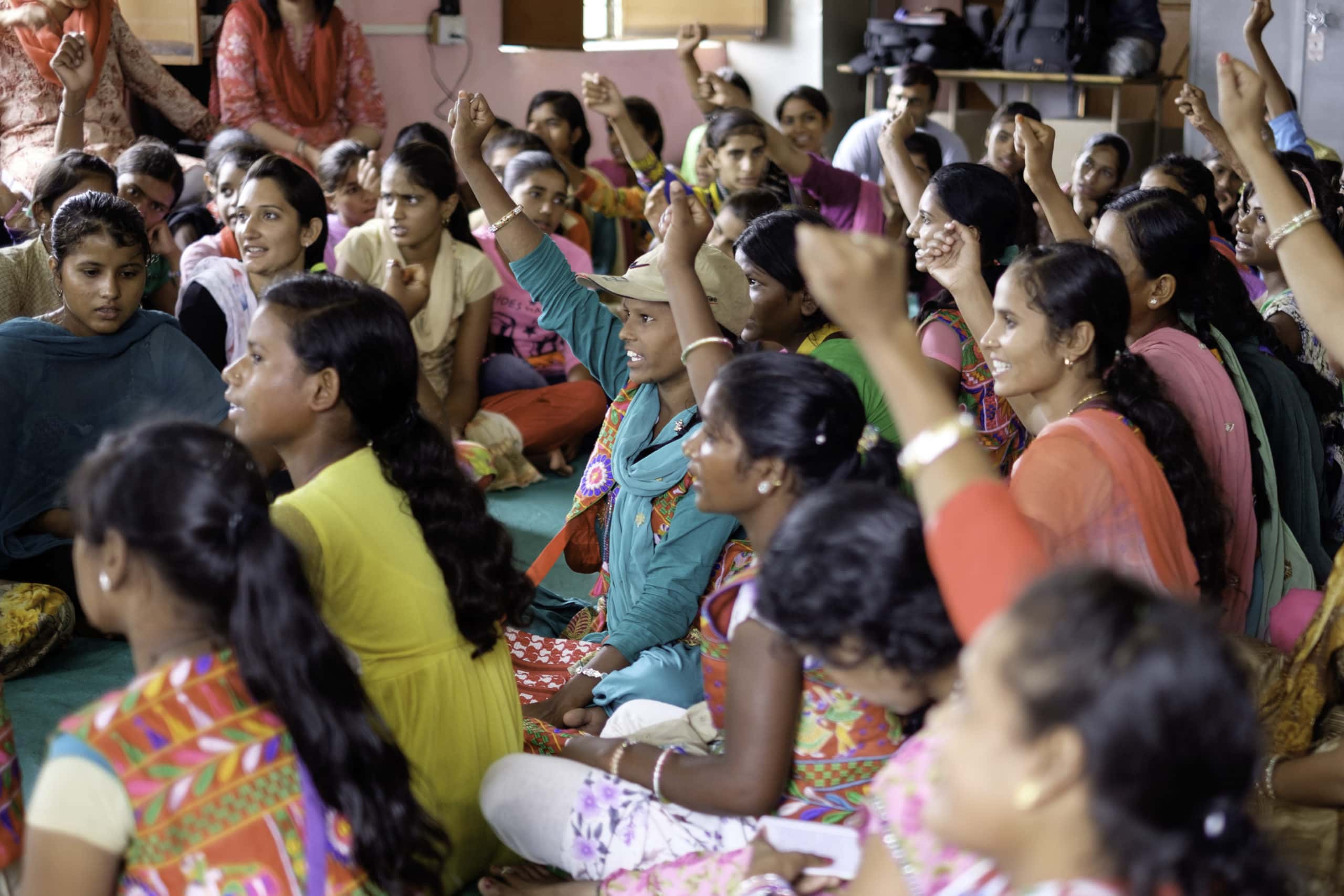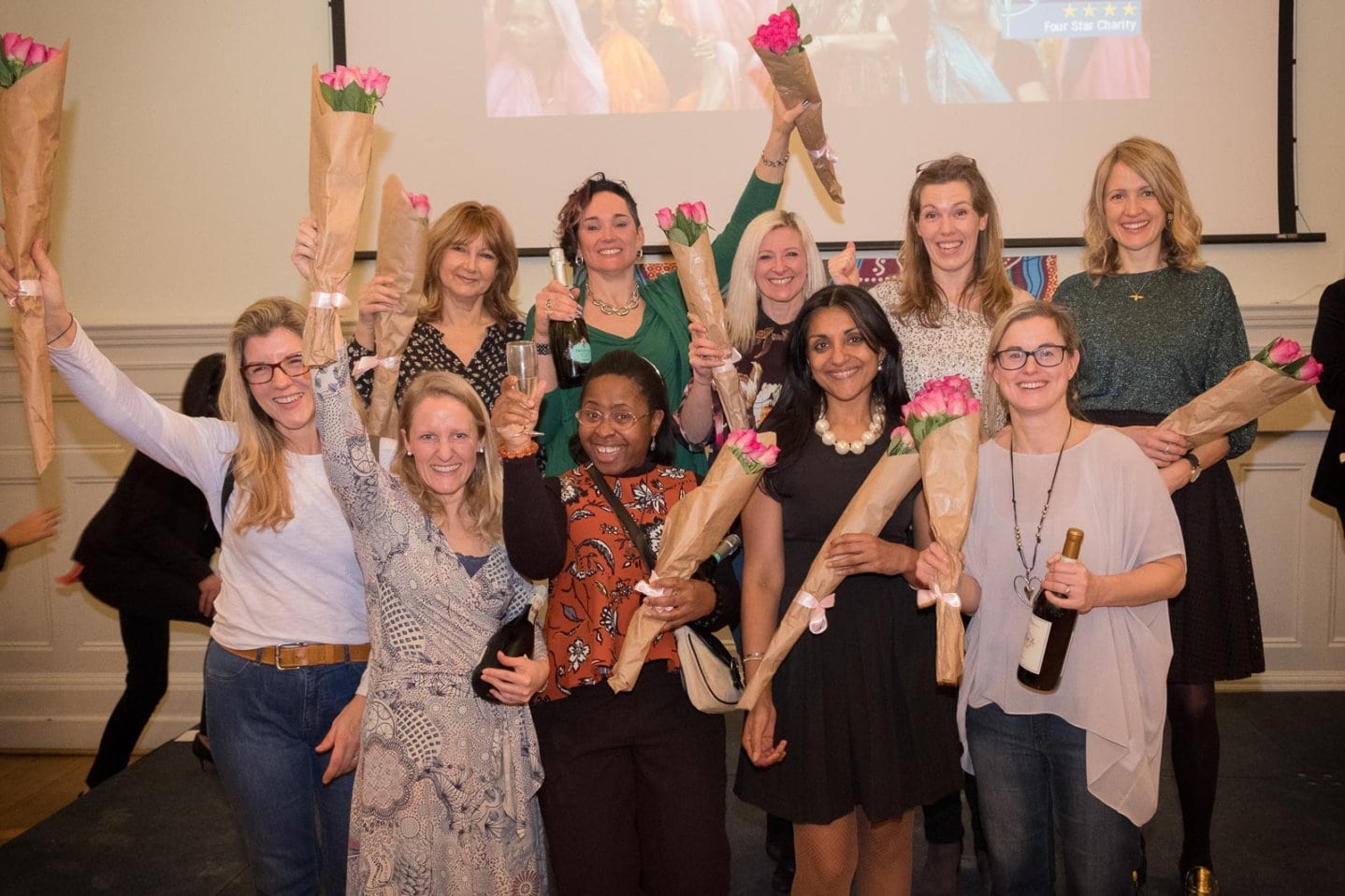Tsege & her daughter are promoting the use of Moringa in Ethiopia

In the Mesqan region of Ethiopia’s Highlands, The Hunger Project works hard to promote Moringa, the miracle tree. Moringa leaves contain many vitamins and minerals and they hugely enhance the nutritional value of a daily meal. This can be highly beneficial, especially for young children, pregnant women and new mothers, like Mebrate, Tsege Nesk’s daughter.
50-year-old Tsege Nesk is a dedicated Moringa Animator in her village, meaning she is a trained volunteer who advises others in her community about the uses of Moringa. She lives in the village of Dobi Kebele with some of her children and grandchildren. For 25 years, since her husband passed away, she has managed on her own. She earns money by weaving and selling wicker mats and allowing one of her children to grow vegetables on her land. They sell the produce (peppers, this year) at the market and split the profit in half.
Tsege is an active volunteer in her village. She is a member of the epicentre committee, and “since about a year I am a Moringa Animator too. I have been trained by The Hunger Project, and by now I know all about the nutritional value of Moringa, about grinding the leaves into a powder and how to use them in our meals.”
The Moringa plant is native to the lowlands of Ethiopia and it’s part of the daily diet. However, in the highlands, it’s a completely different story because Moringa does not grow there. To change that, in 2015 The Hunger Project handed out 3500 Moringa tree seedlings in the Mesqan epicentre. Most of these were planted in the communal Moringa plantation, but Tsege also received ten seedlings. “After six months, I was able to harvest the first leaves. I kept five Moringa trees for my own use and I sold the leaves from the others at the market.”
Before Tsege had the seedlings, she used the leaves from the Moringa plantation. During her 18-year-old daughter, Mebrate’s, pregnancy, she gave her tea made from moringa leaves every day. Two months ago, Mebrate delivered her son Abil. Following the custom in Ethiopia, mother and babay remain inside for the first three months after birth, so it’ll be another month before she will take the baby outside.
Tsege says “I still make Mebrate Moringa tea, every day. And with her milk the valuable nutrients are passed on to Abil too.” Mebrate adds: “I know it’s best for my son that during the first six months of his life I only breast feed him. That is what I learned during the workshops on the 1000 days program.” These 1000 days are counted from the first day of the pregnancy until the second birthday of a child. It has been proven that good food during this period is absolutely essential for good health.
“Our favourite meal is a mash from false banana (trunks of fruitless banana trees), raw (cow)meat and vegetables. A popular meal for babies here is a porridge from teff (a kind of grain) and sorghum (millet), mixed with water, milk, potato and tomato. I love being a mother. For Abil, I hope that he will finish primary school and then become a nurse. That was one of my dreams, but I married when I was 16. So I only finished primary school.”
In March 2016, 15,000 Moringa seeds were nursed into seedlings. Three months later, in June, these seedlings were spread around the region, so that the villagers could plant them just before the rainy season and they’d be able to add Moringa to their diet six months later.
Text: Mariken Stolk
Pictures: Johannes Odé
Inspired? Invest now and empower more people like Tsege and her daughter Mebrate!





